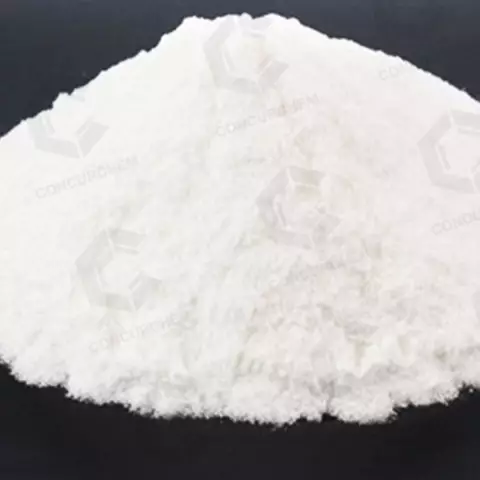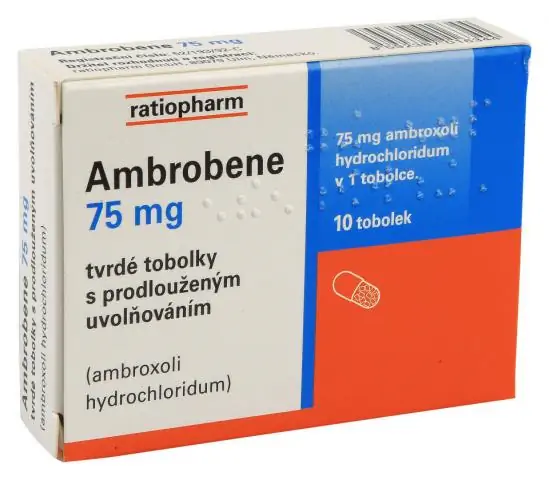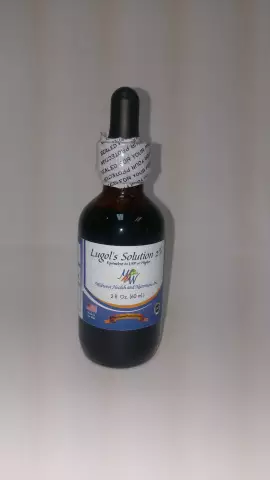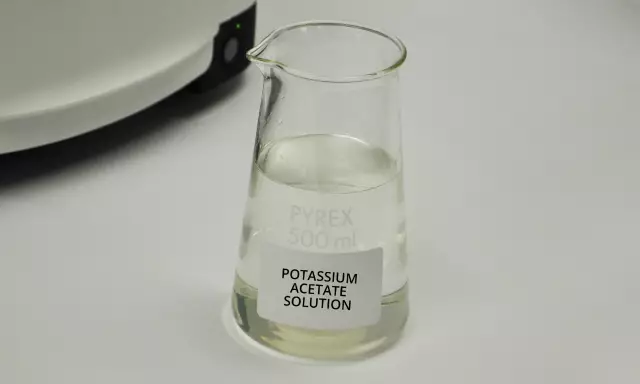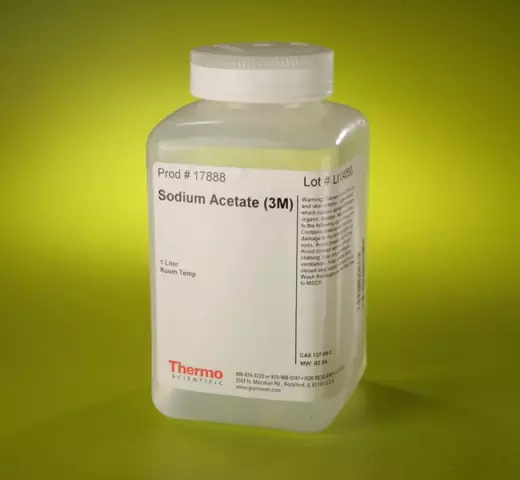- Author Rachel Wainwright wainwright@abchealthonline.com.
- Public 2023-12-15 07:39.
- Last modified 2025-11-02 20:14.
Thiamine hydrochloride
Thiamine hydrochloride: instructions for use and reviews
- 1. Release form and composition
- 2. Pharmacological properties
- 3. Indications for use
- 4. Contraindications
- 5. Method of application and dosage
- 6. Side effects
- 7. Overdose
- 8. Special instructions
- 9. Application during pregnancy and lactation
- 10. Drug interactions
- 11. Analogs
- 12. Terms and conditions of storage
- 13. Terms of dispensing from pharmacies
- 14. Reviews
- 15. Price in pharmacies
Latin name: Thiamin hydrochloride
ATX code: A11DA01
Active ingredient: thiamine (Thiamine)
Manufacturer: JSC "Borisov Plant of Medical Products" (JSC "BZMP") (Republic of Belarus)
Description and photo update: 2019-09-07

Thiamine hydrochloride is a drug designed to compensate for vitamin B 1 deficiency.
Release form and composition
Dosage form - solution for injections: transparent, colorless or yellowish, has a weak characteristic odor (in 1 ml ampoules, 10 ampoules in a cardboard box or 1 polyvinyl chloride package containing 10 ampoules, and instructions for the use of Thiamine hydrochloride).
Composition of 1 ml solution:
- active substance: thiamine hydrochloride - 50 mg;
- auxiliary components: unitiol, water for injection.
Pharmacological properties
Pharmacodynamics
In the body, thiamine hydrochloride (vitamin B 1) is converted into active thiamine pyrophosphate and, as a coenzyme, is part of two complexes: α-ketoglutarate decarboxylase and pyruvate decarboxylase. Which are involved in the oxidative decarboxylation of α-ketoglutaric and pyruvic acids.
Pharmacokinetics
When administered intramuscularly, thiamine hydrochloride is rapidly and completely absorbed.
The distribution over all tissues and organs is fairly uniform. The concentration in the blood is relatively low, while in the plasma mainly free thiamine circulates, its phosphorus esters - in leukocytes and erythrocytes.
Phosphorylation of the substance occurs in the liver. The most active phosphoric ester is thiamine diphosphate, which has coenzyme activity. The accumulation occurs mainly in the spleen, kidneys, brain, liver, heart. Up to 50% of the total amount of thiamine hydrochloride is contained in the myocardium and striated muscles, approximately 40% is in the internal organs.
Excretion is carried out by the kidneys and through the intestines.
Indications for use
Thiamine hydrochloride is prescribed for vitamin B 1 hypo- and avitaminosis.
The drug is also used to treat conditions associated with vitamin B 1 deficiency:
- beriberi disease, pathologies of the nervous system (Wernicke's encephalopathy, poly- and mononeuropathies, neuralgia, including shingles and myalgia);
- malabsorption syndrome of various origins, stay on tube feeding;
- pathology of the cardiovascular system;
- conditions developing against the background of alcoholism, diabetes mellitus, therapy with chemotherapeutic and antibacterial agents and drugs that suppress the intestinal flora, which synthesizes B vitamins;
- conditions against the background of prolonged administration of hypertonic glucose solutions associated with renal pathology, as well as use in patients who are on hemodialysis, etc.
The drug in the dosage form of an injection solution can be used in all clinical situations if it is necessary to quickly eliminate vitamin B 1 deficiency and the impossibility of oral administration.
Contraindications
An absolute contraindication to the use of Thiamine hydrochloride is the presence of individual intolerance to its components.
Relative contraindications (the drug is prescribed under medical supervision):
- premenopausal / climacteric period in women;
- Wernicke's encephalopathy;
- pregnancy and lactation.
Thiamine hydrochloride, instructions for use: method and dosage
Thiamine hydrochloride solution should be injected deep intramuscularly.
Dosing regimen for adults: 1 time per day, 25-50 mg (0.5-1 ml) daily. You need to start therapy with the use of small doses (up to 25 mg). If well tolerated, the dose is increased by 25 mg per day. The maximum dose is 300 mg per day. The duration of the course of treatment is from 10 to 30 injections.
For children, the drug is prescribed 1 time per day, 12.5-25 mg. Due to the complexity of dosing, patients of this age group are recommended to use the drug in a different dosage.
Side effects
Against the background of the use of Thiamine hydrochloride, adverse reactions can develop regardless of the dose.
Allergic reactions are possible (in the form of urticaria, itching of the skin, angioedema, rarely - anaphylactic shock), in addition, they can manifest themselves in the form of disorders from the gastrointestinal tract, other systems and organs.
Systemic organ hypersensitivity reactions:
- respiratory system: bronchospasm, shortness of breath;
- cardiovascular system: tachycardia;
- skin and subcutaneous tissues: exanthema, rash.
Also, in rare cases, reactions are possible at the injection site: pain at the injection site, increased sweating.
Overdose
Overdose cases have not been reported.
Therapy (with the development of side effects): symptomatic.
special instructions
After the administration of Thiamine hydrochloride solution in large doses, anaphylactic reactions may occur.
When re-administering the drug to patients who have previously received large doses of vitamin B, it is recommended to start treatment with small doses, which will help to avoid the development of allergic reactions.
The drug should not be used as a substitute for a balanced diet (only in combination with diet therapy).
Against the background of the use of high doses of vitamin B 1, the results may be distorted when determining theophylline and urobilinogen in the blood serum.
Parenteral administration of Thiamine hydrochloride is recommended only if oral administration is not possible (due to nausea, vomiting, malabsorption syndrome, in patients in a preoperative and / or postoperative state).
Patients with Wernicke encephalopathy should use thiamine hydrochloride prior to the administration of dextrose.
Application during pregnancy and lactation
Thiamine hydrochloride during pregnancy / lactation can only be used in cases where the expected benefit is higher than the risk.
Controlled studies of the safety and efficacy of Thiamine hydrochloride in pregnant women have not been conducted. Thiamine passes into breast milk.
Drug interactions
Thiamine hydrochloride should not be mixed with solutions containing sulfites, nicotinic acid and alkaline solutions, as this leads to the destruction of thiamine.
When thiamine is mixed with streptomycin or benzylpenicillin, the latter are destroyed (the combination is not recommended).
Large doses of thiamine can interfere with the metabolism of other vitamins and lead to worsening of their deficiency, especially in malnourished patients. Simultaneous parenteral administration of Thiamine hydrochloride with cyanocobalamin or pyridoxine is not recommended.
Other possible interactions:
- citrates, carbonates, barbiturates, copper preparations: it is not recommended to prescribe thiamine at the same time as these drugs;
- fluorouracil, doxifluridine and other cytostatics: reduce the effectiveness of thiamine;
- depolarizing muscle relaxants (suxamethonium iodide, etc.), phentolamine, propranolol, sympatholytics (reserpine), hypnotics: their effect is weakened.
Analogs
Thiamine hydrochloride analogs are Thiamine chloride injection, Thiamine chloride, Thiamine chloride-ECHO, Vitamin B 1, Thiamin, Thiamin-Vial, etc.
Terms and conditions of storage
Store in a place protected from light at temperatures up to 25 ° C. Keep out of the reach of children.
The shelf life is 3 years.
Terms of dispensing from pharmacies
Dispensed by prescription.
Reviews about thiamine hydrochloride
Reviews of Thiamine hydrochloride are mostly positive. It is noted that the effect of the drug develops rapidly. In most cases, it is used as part of a comprehensive treatment.
Of the shortcomings, they most often indicate an unpleasant smell of the solution.
Price for Thiamine hydrochloride in pharmacies
The price of Thiamine hydrochloride is unknown, since the drug is not available in pharmacies.
The approximate cost of analogs:
- Thiamine chloride, 50 mg / ml solution for intramuscular administration (10 ampoules, 1 ml each) - 26 rubles;
- Thiamin, 50 mg / ml solution for intramuscular administration (10 ampoules, 1 ml each) - 29 rubles.

Anna Kozlova Medical journalist About the author
Education: Rostov State Medical University, specialty "General Medicine".
Information about the drug is generalized, provided for informational purposes only and does not replace the official instructions. Self-medication is hazardous to health!

